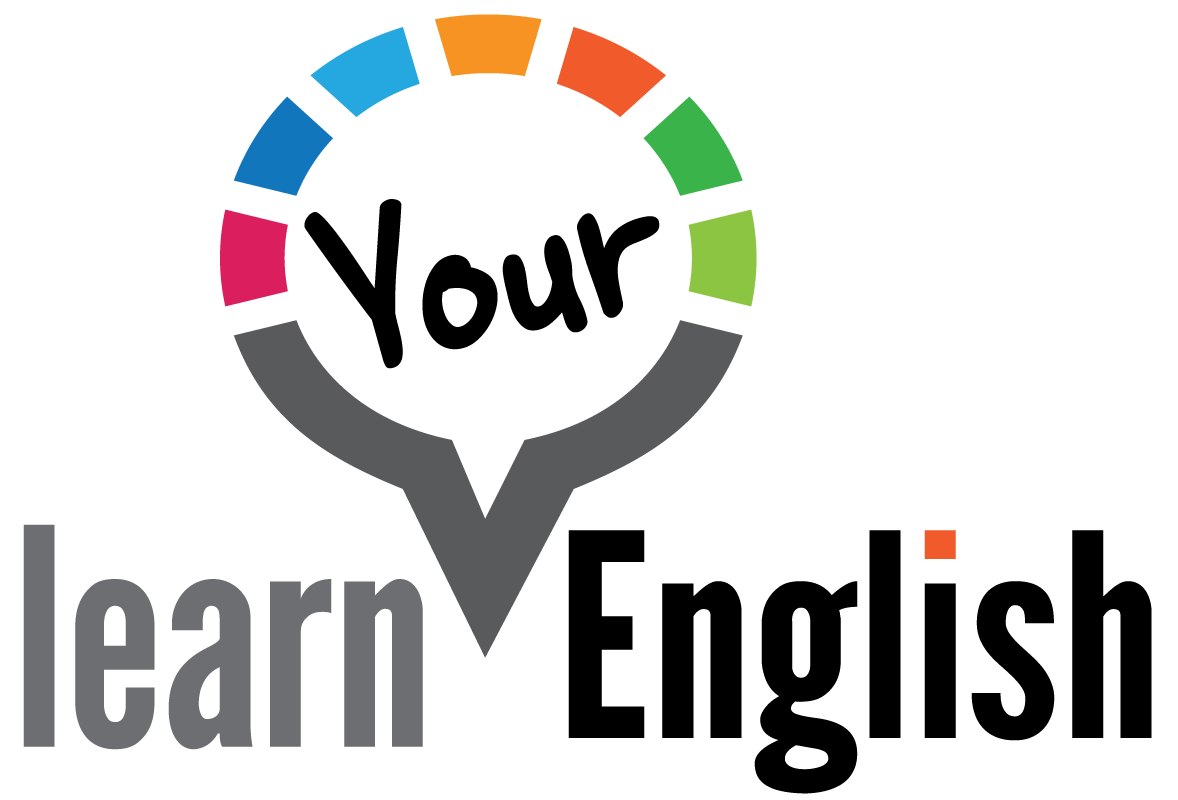The Teacher Talking Time Podcast
Or Watch the Video Versions on YouTube
Hosting your own course? Try Skool
Courses and community in the same place. We use Skool for our courses and love it.
Starting a Podcast? Try Podbean
We use Podbean every day for our own shows and can say how easy and effective it is.
EPISODES
Episode 28: Ana-Marija Petrunic
In this episode, Ana-Marija delves into:
how her feeling of being "suspended in identity" led her to a career in ELT
her work in Kosovo - what it was, why she went, and how it happened
the challenges of re-constructing education in a post-war region
how identity impacts language learning and teaching
why she believes neutrality does not exist in education
why teachers need to embrace tension and discomfort in their classrooms, and have tough, meaningful, and impactful discussions with their students that will impart social change
The Cult of Learning 5: Setting Clear Language Goals, Part III
This is the last episode in our series on Setting Clear Language Goals. In this series, we discuss the seven “Cs” of goal setting. In Part 1 and II, we discussed the first 5. In Part II, we discuss the final two Cs.
The Sixth C: Character
A good CHARACTER to guide us and keep us on a proper course.
The Seventh C: Capacity
A capacity to enjoy the PROCESS along the way
Playing the long game
Episode 27: Chiara Bruzzano & Marc Jones
Marc and Chiara help us parse what current research and findings on listening says, and discuss what strategies and approaches we as teachers can utilize in our classes to best help our students.
This episode is divided into 3 sections:
1. The Differences between teaching, practicing, and testing listening (3:20)
2. Analyzing the standard approach to teaching listening (34:00)
3. Looking at what can be improved and suggestions of how to go about it. (1:02:00)
The Cult of Learning 4: Setting Clear Language Goals, Part II
In this episode, we talk about the next 3 Cs: Concentration, Consistency, and Commitment:
What are they?
How do they help us learn?
Why are they important?
Mike and Leo also talk about very exciting announcements for Learn YOUR English:
A. Free E-book for Students called "The 3 Myths of Learning" - download for free now!
B. The LYE School of Learning - learn for only $5 for your whole life!
C. LYE Quick Fixes: Improve one part of your language quickly and effectively.
Episode 26: Jason Anderson
In this episode, Jason discusses:
His recent project in India (4:00)
The history of the PPP Framework (11:00)
Why the Zone of Proximal Development is misunderstood in second language acquisition (19:00)
Lexis, Grammar, the lexical approach and a synthetic syllabus (22:00)
If TBLT is appropriate in developing world contexts (28:00)
What it means for an approach "to work" (36:00)
Creating appropriate outcome measures (39:30)
Research and practice together in a reflective model of teacher education (50:00)
The TATE model (57:30)
The Cult of Learning 3: Setting Clear Language Goals, Part 1
In this episode, we talk about the first 2 Cs:
1. Conception:
The first condition to success is establishing a clear conception of what we want to achieve or accomplish.
2. Confidence
We cover this and more in Part 1 of our series on setting clear language goals. Send us a message and let us know how you plan for success.
The second step is developing confidence.
Episode 25: Jane Willis
In this episode, Jane delves into all things teaching, including:
her early beginnings in teaching (4:00)
one of her first books "Teaching English through English" (10:00)
the COBUILD syllabus
the restrictions course books put on training the next generation of teachers (26:00)
Why Task-based Language Teaching (38:30)
Why TBLT isn't PPP upside down (53:30)
TBLT with beginners (56:30)
If TBLT is appropriate for all teachers (1:01:30)
The latest Willis book "Winning the Grammar Wars" (1:07:30)
What an input-rich course would look like (1:33:00)
Raising Bilingual Children (1:39:00)
Cult of Learning 2: Three Myths of Learning
In episode two, Mike and Leo talk about myths around learning. There are many beliefs about how people learn in the 21st Century - especially about how people learn languages - that are not actually true.
The guys talk about three of them:
Myth 1: We can only learn in the classroom
Myth 2: We can only learn from a textbook
Myth 3: We can only learn with a teacher
At the end of the first segment, Mike and Leo assign a reflection task. Listen for that and let us know your answers!
Episode 24: Dr. Marije Michel
In this episode, Dr. Michel discusses the second language learning process, the role of input, and her most recent research on alignment.
Dr. Michel focuses on:
Learning by doing
The role of input
The role of grammar instruction and repetition in task-based approaches
CAF - Complexity, Accuracy, Fluency
Training students to give meaningful peer feedback
An important refugee project called The English Academy for Newcomers
Alignment - what it is, how it works, and how teachers can incorporate it
Episode 23: Fernando Rosell-Aguilar
In this episode, Fernando discusses:
the main differences between online and face-to-face teaching
practices to use and avoid in online teaching
if the mass move to teaching online will re-shape traditional education
what he believes the term "supplementary" means in education
the myth that a teacher is required for learning
how much teaching should be done online
techniques teachers can use to improve their online teaching
The Cult of Learning 1: Three Rules of Learning
In Teacher Talking Time’s first episode for learners, Mike and Leo introduce the Cult of Learning podcast, discuss why it’s called “The Cult of Learning,” what “Learn YOUR English” really means, and what we hope to accomplish by helping people learn the language that’s important to them.
This episode is all about learning. Mike and Leo go over the three most important rules for learning:
Effectiveness (the what)
Adherence (the why)
Efficiency (the how)
Episode 22: Vinicius Nobre
In this episode, Vinicius talks about:
learner motivation, and the role teachers play - or don’t play - in it
the deficiencies in teacher training courses
textbooks, the intention behind how they are written, and why they shouldn’t be used as recipes
the ELT context in Brazil, including the hurdles to reaching proficiency, and why the English language rarely has any tangible benefits to Brazilians
the challenges to professionalizing ELT in Brazil
Episode 21: Neil McMillan
In this episode, Neil talks about:
the gap between standardized tests and necessary performative tasks, especially in the case of immigration;
what SLB is, how it works, and how teachers elsewhere can form a cooperative;
if ELT is a genuine career given the lack of regulation in the industry;
TBLT myths, SLB's TBLT course, and how teachers can implement tasks from coursebooks;
EAP contexts and how understanding a professor's expectations is integral before creating language curriculum.
Episode 20: A Decade, Change, and the Three Musketeers
To kick off 2020, Leo, Mike, and Andrew take a light and casual look at the year that was. In their first roundtable episode in a while, the boys reflect on the past year - and decade - and look forward to a new year. Grab a drink, go for a walk, or enhance your commute by listening to them failing to stay on topic, wandering deep into tangents, and debating the pronunciation of "vice versa."
Episode 19: Dr. Paula Winke
In this episode, Dr. Winke provides insight on:
what proficiency is, the models usually used to measure it, and what problems exist in that model;
how proficiency progresses vertically, horizontally, and spherically, and questions why we usually only gauge progress on a vertical scale;
how programs can evaluate if they are assessing accurately;
the problem with measuring proficiency across different program levels;
how course grades do not correlate to proficiency and that most assessments don't est what is being learned
ACTFL and CEFR scales and how tasks can be great assessment tools.
Episode 18: Why Did You Become a Teacher? Part 2
October 5 is Teacher Appreciation Day in Canada, and in over 100 countries globally. To help celebrate teachers and teaching professionals the LYE podcast - Teacher Talking Time - has organized a special two-part series called “Why did you become a teacher?” We interviewed six teachers from different countries and contexts to hear their stories, and celebrate the stories of all educators around the world.
We asked six teachers eight questions over two episodes. We talked about becoming a teacher, remaining a teacher, thinking about leaving teaching, misconceptions of teaching, rewarding experiences, and much more.
Episode 17: End the Stigma - Mental Health Awareness
The episode’s focus is on post-secondary and international study, where Mental Health rates among university and college students are on the rise in Canada. Issues of Mental Health can be even tougher in a new country, in a new language, in a new culture. International students, refugees, and other newcomers experience mental health as anyone else would, perhaps moreso, with factors like stigma, shame, and survivor’s guilt lingering. '
For those of us in education, the question remains: what can we do?
Episode 16: Why Did You Become a Teacher? Part 1
October 5 is Teacher Appreciation Day in Canada, and in over 100 countries globally. To help celebrate teachers and teaching professionals the LYE podcast - Teacher Talking Time - has organized a special two-part series called “Why did you become a teacher?” We interviewed six teachers from different countries and contexts to hear their stories, and celebrate the stories of all educators around the world.
We asked six teachers eight questions over two episodes. We talked about becoming a teacher, remaining a teacher, thinking about leaving teaching, misconceptions of teaching, rewarding experiences, and much more.
The teachers who graciously took part in this mini series are as follows. Please feel free to reach out to them and to support the projects they are working on.
Episode 15: Brett Reynolds
In this episode, Brett talks to Leo about his recent publication in the ELT Journal called "Against Teaching Collocations."
Are collocations connected to language acquisition?
Are they actually a beneficial strategy for vocabulary building?
Does it matter if students can notice and identify collocations?
Should they only be for receptive practice?
Are collocations simply another form of native speakerism?
Episode 14: Dr. Susan Hunston
In this episode, Leo talks with Dr. Hunston about pattern grammar and how it is associated with language acquisition. She argues that patterns enable the expedition of acquisition - especially in the area of lexis - and emphasizes that it is the teacher's responsibility to activate and seek those patterns in texts and curricula, even if they are not explicitly stated























Subscribe to the Show
Teaching Talking Time is an English Language podcast aimed at teaching professionals and learners. Leo, Mike, and Andrew bring you discussions, interviews, and debates on English language training and learning. From approaches, misconceptions, and successful and failed case studies, each episode is dedicated to their vision: continual growth. They interview teachers and learners from around the world, and also debate the merits of common teaching approaches.
We release two episodes a month: one for teachers and one for students.